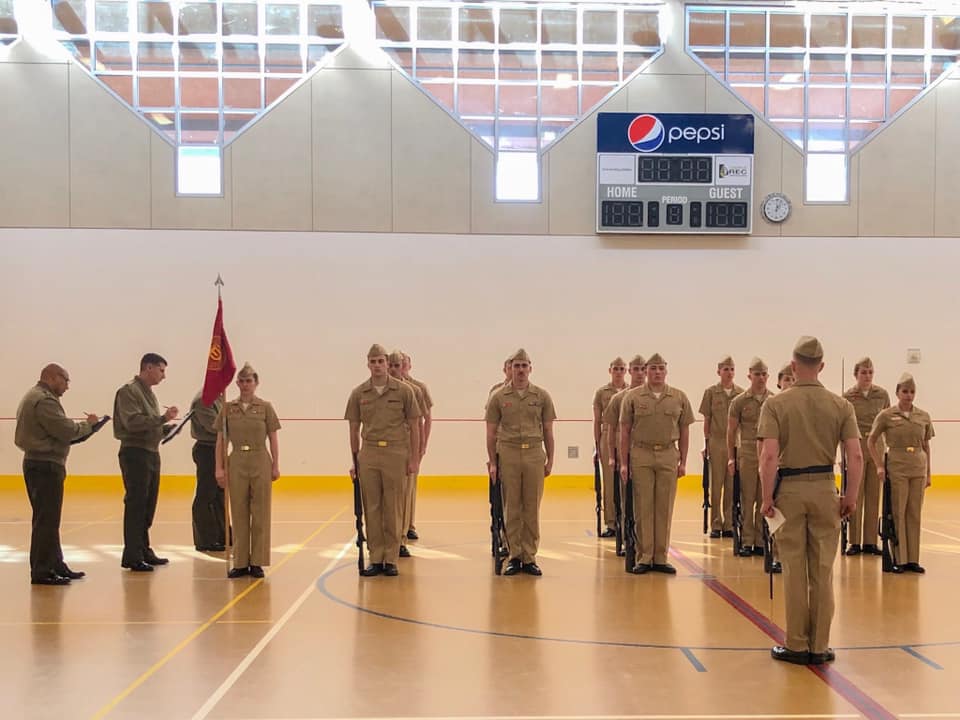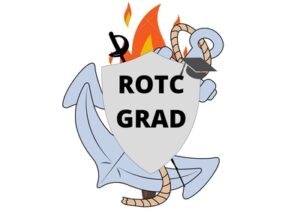
Introduction
I knew there was drill in boot camp, but what about for ROTC cadets and midshipman? It seemed weird to me that in a college setting there would also be the same type of practice. When I showed up to my reserve unit, I thought it would be a boot camp environment with a lot of yelling and screaming. But in actuality, military drill is a form of tradition that teaches discipline and is meant for other ceremonial purposes.
So what is ROTC Drill?
Cadets and midshipman conduct drill in ROTC to learn the military tradition of handling a rifle smartly and in unison with their team. It is meant for the purposes of instilling discipline, comradery, and knowledge for executing ceremonial events such as Change of Command and honorary services.
What Does Drill Look Like?
This is a great video below of what a drill competition in NROTC looks like. Each branch has slightly different rifle movements but the manual for the most part remains the same. Every cadet or midshipman will do drill at their ROTC unit. My unit practiced a couple times a week before classes on Tuesdays and Thursdays. Once a year, we would also compete against other universities in the Northwest.
If you take a careful look at the video, you’ll notice the lead midshipman is carrying a sword and practicing sword manual. He performs various movements with the sword that also fall in line with the platoon he’s calling cadence for. It’s a demanding position and requires good rhythm and vocal command presence.
Does drill make you a better officer?
Drill is an important aspect of any military unit. Aside from boot camp and training environments, it’s used as a ceremonial practice for change of command, funeral services, and memorial events. It’s important for future officers to be intricately familiar with drill fundamentals so they can take place in these ceremonies and know what a drill platoon consists of for planning purposes.
For Marine Option midshipman going to Officer Candidate School, they will be expected to execute drill flawlessly in front of their instructors. I drilled every day at OCS and even competed against other platoons while there. We had top ranking officers even sit in on some drill practices it was that important to them. If you do Marine ROTC (NROTC), you’ll have plenty of opportunity to learn drill before you show up to OCS.
Does every ROTC unit do drill?
Every branch of the military ROTC will do drill. It’s not my most favorite thing because of how much time commitment it required to learn while going to school and training for other aspects of the military. But it is a much appreciated skill to have and your enlisted will respect you more if you you’re good at it.
There’s other positions on a drill team you can be such as color guard. I did Color Guard for a 9/11 memorial, halftime shows in our football stadium, and several other events. Color Guard can be as meticulous as drill manual because you have to keep the top of your pike in alignment with the other three flags as you raise and lower them.
Honor Guard is all sword manual, which I think is the coolest. For the veterans day ceremony, we had our unit present the swords in honor of Vietnam veterans as they walked down the isle.
Important note: There’s a Marine Corps specific position on the drill team who holds the guidon. It’s a smaller flag and this induvial marches alongside the platoon in the front while executing subtle movements when the rest of the platoon does.
My Experience Doing Drill
I enjoyed competing against other schools in drill competitions. However, like I said before, drill took up a considerable amount of time to practice and learn all four years. As a Marine Option going to OCS, I’m glad that I was able to learn the rifle manual three years in a row leading up to the summer I attended. If you plan to go the Navy or Air Force route, drill is a lot less relevant. The Air Force doesn’t really drill or compete the same way the other branches do.
Since being in the fleet, I haven’t drilled at all but the knowledge and ability to is always there if there is ever an opportunity to be present of a ceremonial service. It’s one of those things you look back on and are glad you learned it, but might not ever use again.
Conclusion
Thanks for reading! If you have any questions or comments, feel free to reach out at theyouculture@gmail.com and I’ll do my best to respond. Thank you for the feedback I’ve received already and be sure to check back regularly for the next article.
